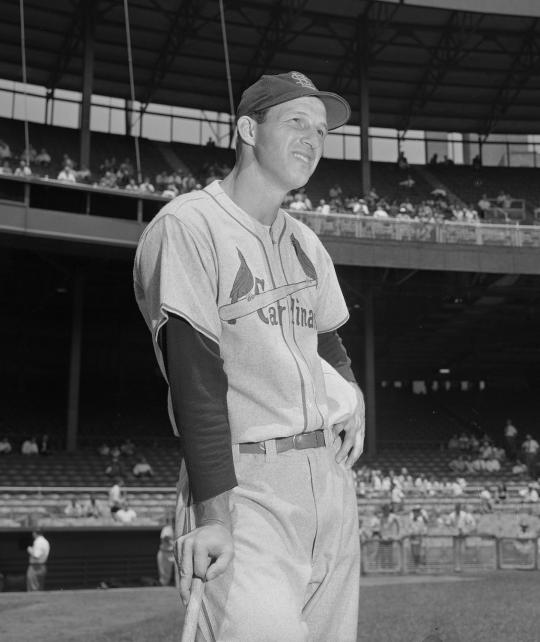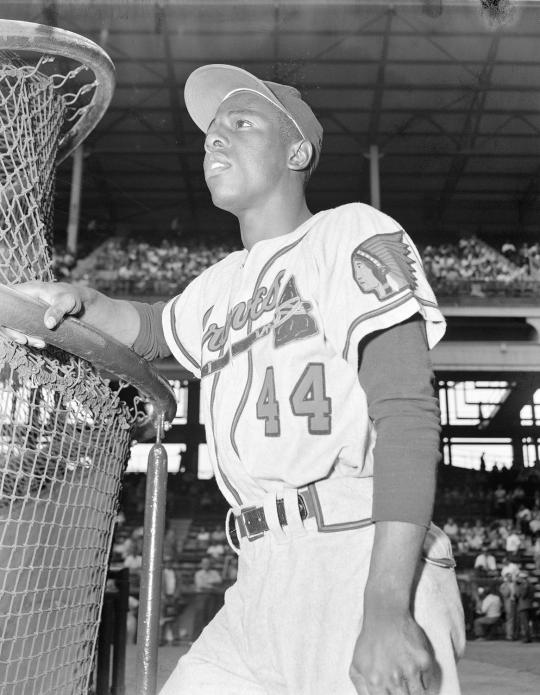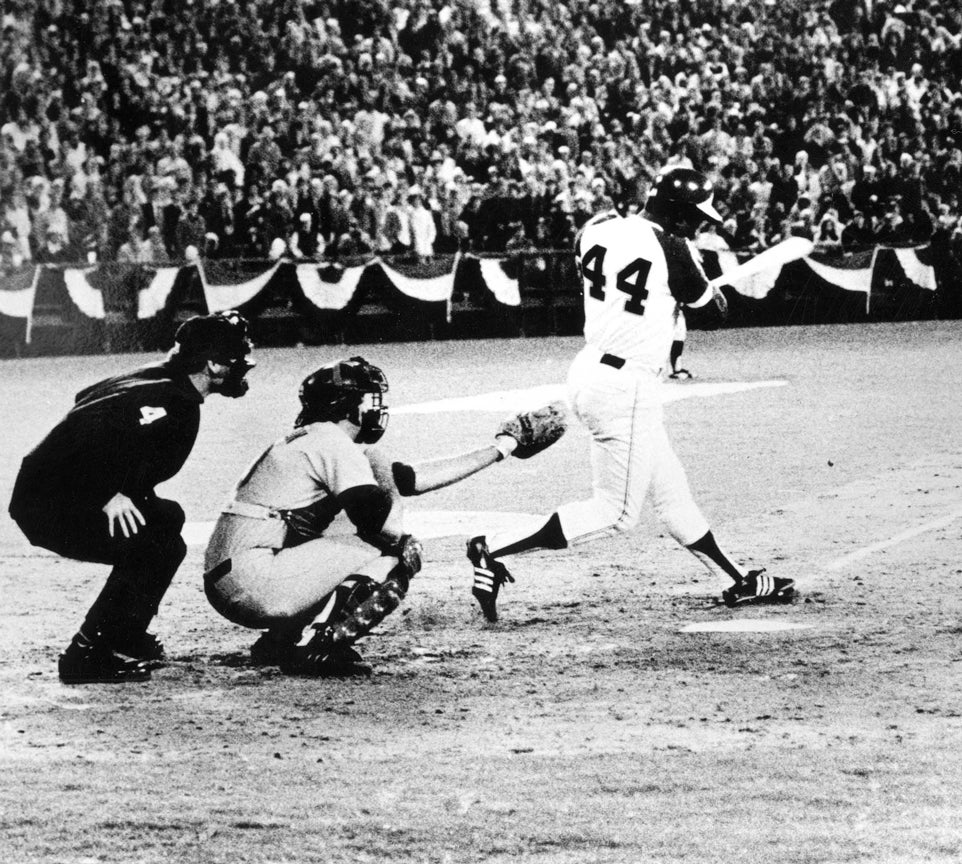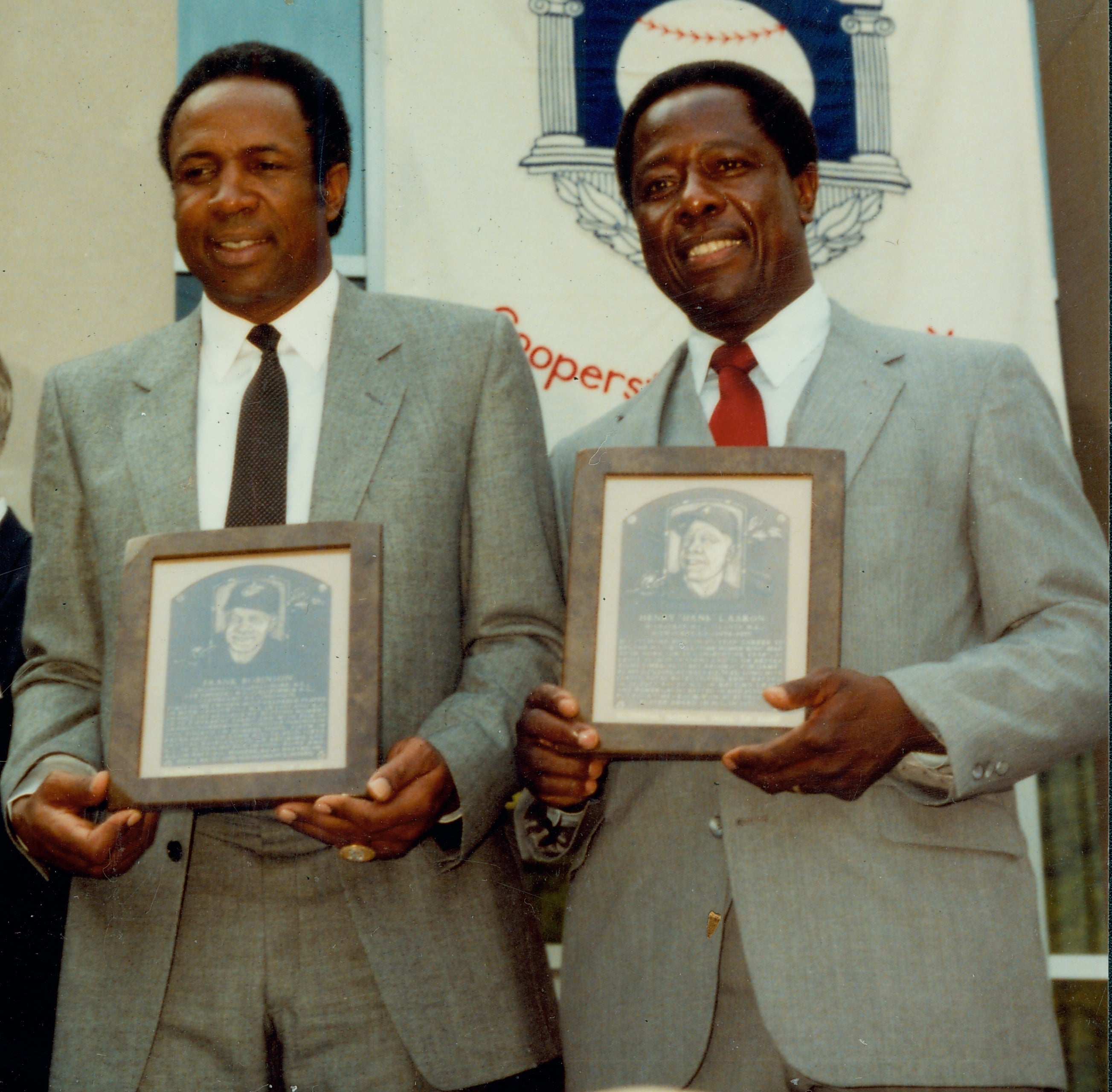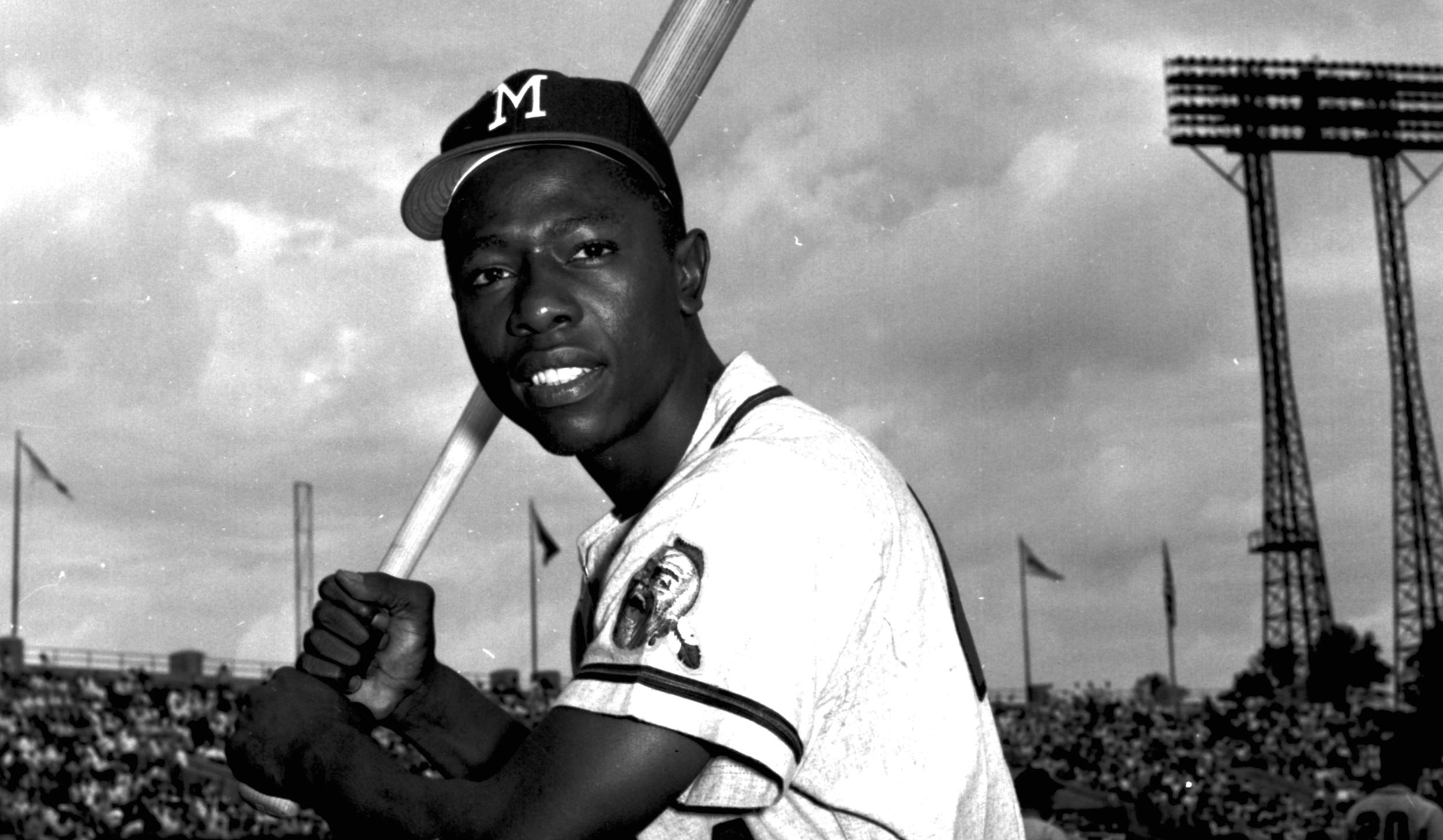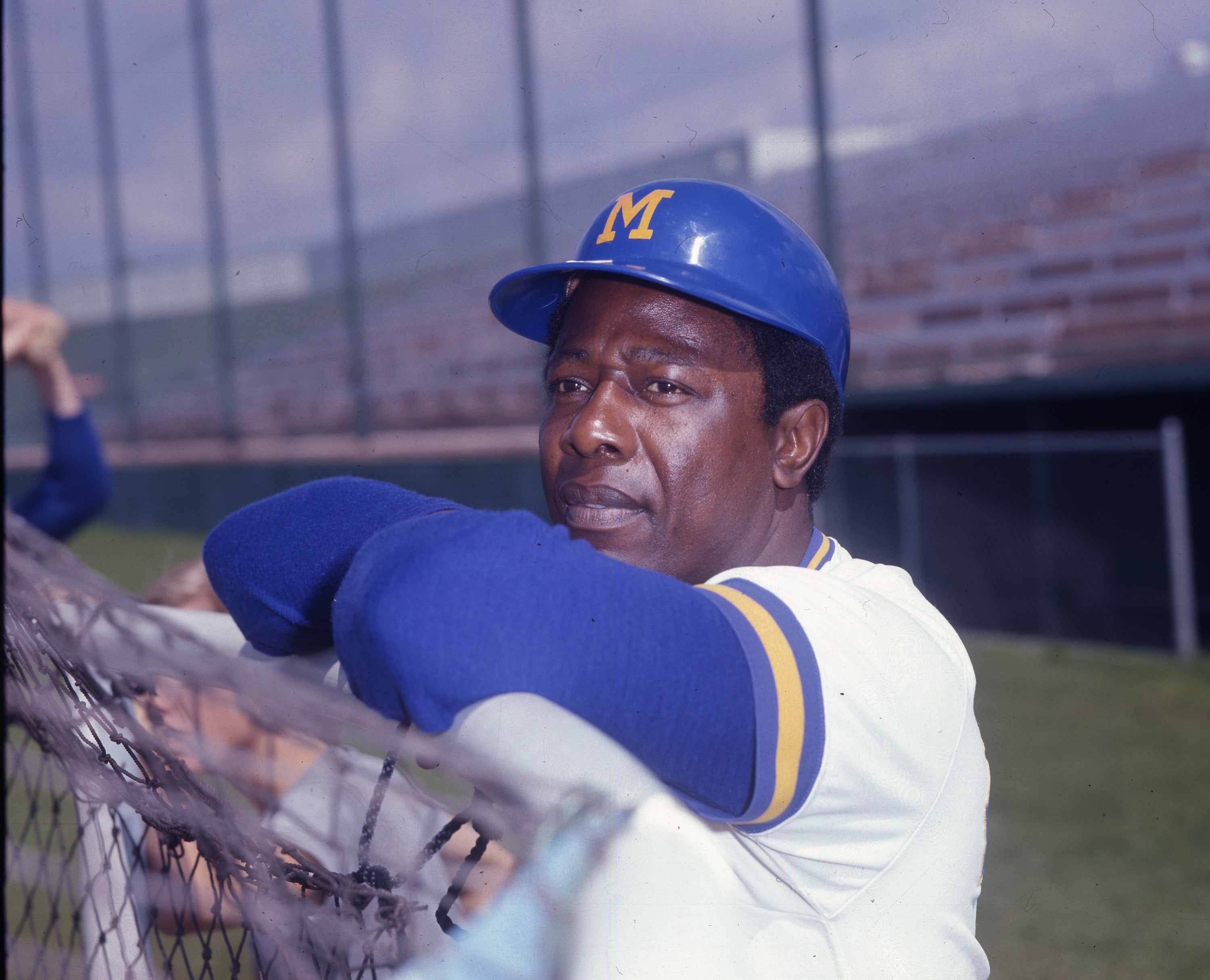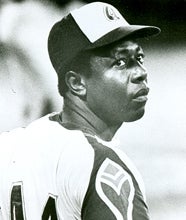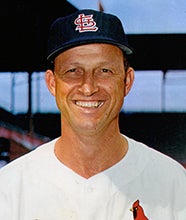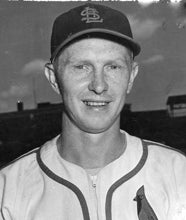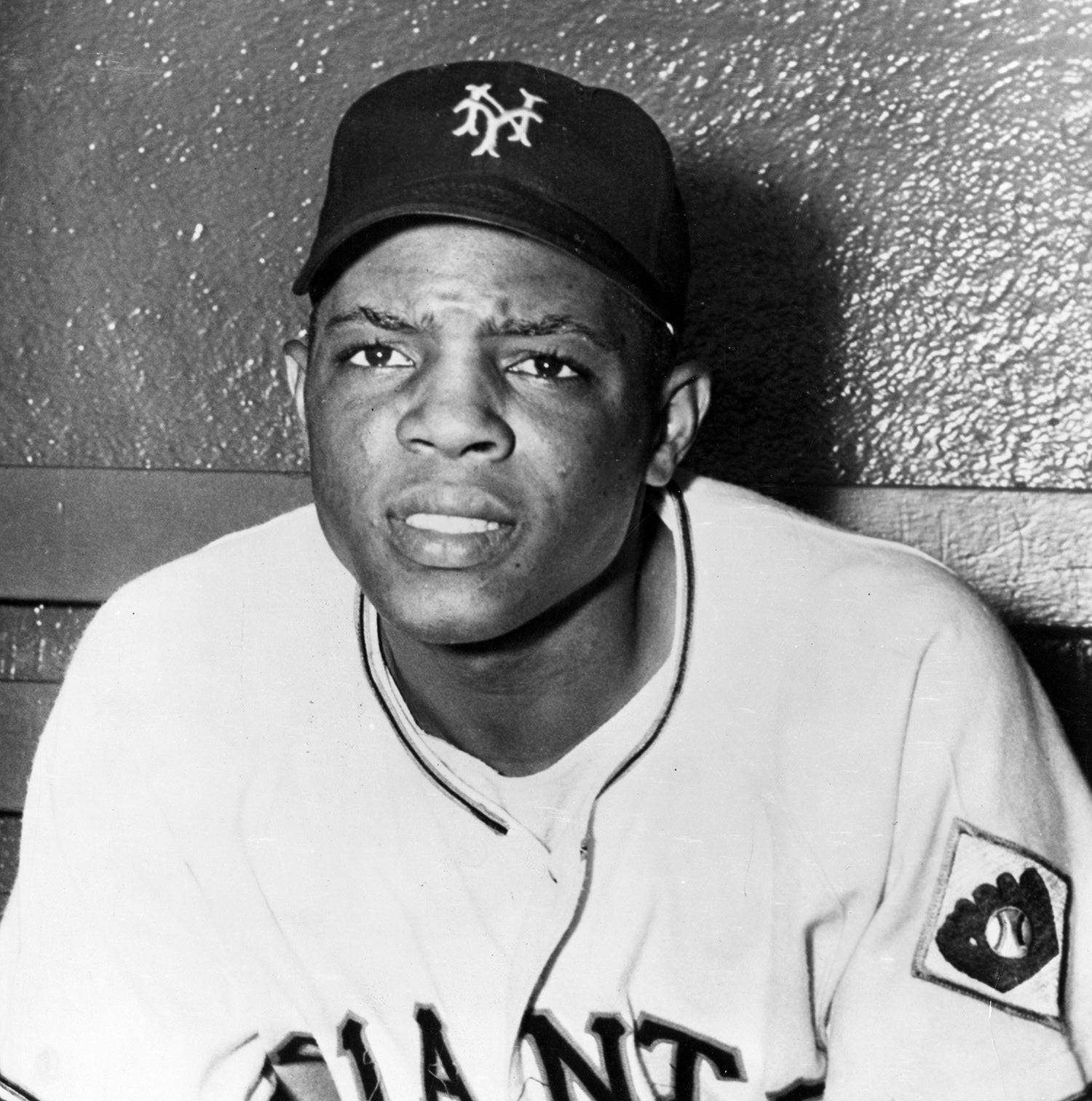- Home
- Our Stories
- Aaron edges Musial, Schoendienst for 1957 NL MVP
Aaron edges Musial, Schoendienst for 1957 NL MVP
In the star-studded National League of the late 1950s, the competition for the annual Most Valuable Player Award was fierce.
Future Hall of Famers like Ernie Banks, Willie Mays, Stan Musial and Frank Robinson seemed to put up career years every year.
Hall of Fame Membership
There is no simpler, and more essential, way to demonstrate your support than to sign on as a Museum Member.
So it was no wonder that when Henry Aaron was informed on Nov. 14, 1957, that he was the choice for NL MVP honors, many news outlets described him as “giddy”.
For a man who had powered the Milwaukee Braves to their first World Series title a little more than a month before, an MVP award was truly something special.
“This was a year of big thrills for me, but I guess today I got the biggest one of all,” Aaron told the Associated Press after learning of the results of the Baseball Writers’ Association of America’s vote. “I just didn’t think anybody could beat out Stan Musial.”
Musial, the Cardinals’ longtime outfielder who played the entire 1957 season at first base, won the NL batting championship that year with a .351 average – his seventh-and-final NL batting crown. Musial also hit 29 home runs and drove in 102 runs while leading the league in on-base percentage at .422.
Musial told the Associated Press that he expected a player on the pennant-winning Braves to take home the award, adding that “No one would have had any objections” if Red Schoendienst, the Braves’ second baseman who finished third in the balloting, would have won the award.
Musial missed what would have been his fourth NL MVP by just nine points in the balloting, finish second for the fourth time in his career. Schoendienst, who led the NL with 200 hits while splitting the season between the Giants and the Braves, was 18 points behind Aaron and finished with eight first-place votes, one behind Aaron.
But in the end, it was Aaron – who led the NL with 44 home runs, 132 RBI and 118 runs scored while leading Milwaukee to its first pennant – who took home the hardware.
At 23, Aaron had just completed his fourth full big league season.
Hank Aaron won the National League Most Valuable Player Award in 1957 in just his fourth season in the majors. Aaron led all of baseball with 44 home runs and 132 RBI that year while powering the Braves to the World Series title. (Osvaldo Salas/National Baseball Hall of Fame and Museum)
Share this image:
He would never win another NL MVP, but his unrelenting consistency over the next 17 seasons produced 755 home runs, 2,297 RBI and 6,856 total bases. The RBI and total bases marks remain big league records.
Aaron retired following the 1976 season and was elected to the Hall of Fame in 1982.
Craig Muder is the director of communications for the National Baseball Hall of Fame and Museum

